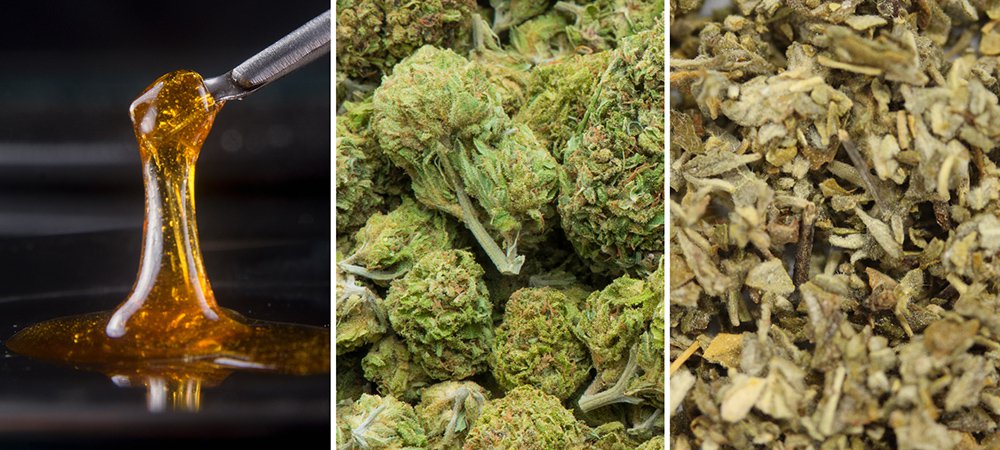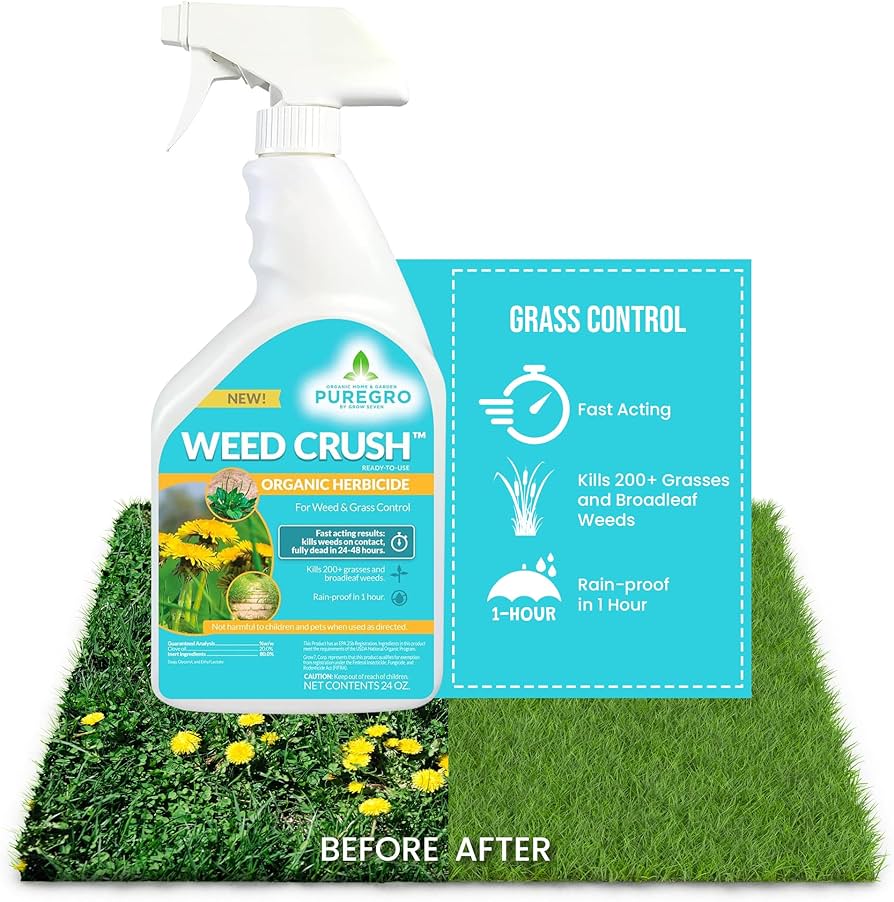As an Amazon Associate, I earn from qualifying purchases.
Natural weed killers use organic ingredients, while synthetic weed killers rely on chemicals. Both have distinct advantages and drawbacks.
Natural weed killers are eco-friendly and safe for humans, pets, and beneficial insects. They often contain ingredients like vinegar, salt, and essential oils, which break down quickly and don’t harm the soil. Synthetic weed killers, on the other hand, are often more effective at quickly eliminating weeds.
These products contain chemicals like glyphosate, which can be harmful to the environment and non-target organisms. Choosing between natural and synthetic weed killers depends on your priorities, such as environmental impact, safety, and effectiveness. Balancing these factors can help you decide the best option for your garden.

Credit: adf.org.au
Natural Weed Killers
Natural weed killers use vinegar, salt, and lemon juice. These ingredients are safe and eco-friendly. They do not harm pets or children. You can find them in your kitchen. No need for special purchases.
They are non-toxic and biodegradable. They do not pollute the soil. Safe for wildlife and water sources. They are cost-effective. Easy to make at home. Great for small gardens.
These options may require frequent applications. They are less effective on tough weeds. Larger areas need more time and effort. They may not work on all types of weeds. Weather can affect their performance.
Synthetic Weed Killers
Synthetic weed killers often contain glyphosate. This chemical is very powerful. Another common chemical is 2,4-D. It targets broadleaf weeds. Dicamba is also used. It causes plants to grow uncontrollably. Atrazine is used in cornfields. These chemicals are effective but can be harsh.
Synthetic weed killers work quickly. They are very effective against tough weeds. These products are long-lasting. They are easy to apply. Many homeowners prefer them for large areas.
Synthetic weed killers can be harmful to the environment. Some chemicals pollute water sources. They may also harm other plants. Children and pets can be at risk. Safety measures are important.
Effectiveness Comparison
Natural weed killers often offer eco-friendly benefits, while synthetic options tend to deliver faster, more potent results. Balancing environmental impact and effectiveness is key in choosing the right solution.
Speed Of Results
Synthetic weed killers work very fast. You can see results in a few hours. Natural weed killers take more time. Results may show in a few days. Both types can be effective.
Long-term Impact
Synthetic weed killers can harm the soil. They may affect future plant growth. Natural weed killers are safer for the soil. They do not harm future plants. Both have their pros and cons.
Type Of Weeds Controlled
Synthetic weed killers can target many types of weeds. They are very strong. Natural weed killers may be less effective on tough weeds. They work best on young weeds.

Credit: www.arbico-organics.com
Environmental Impact
Natural weed killers often pose less risk to the environment, relying on organic ingredients. Synthetic alternatives can harm ecosystems due to chemical runoff.
Soil Health
Natural weed killers often enhance soil health. They add nutrients back into the soil. Synthetic weed killers can harm soil structure. They may kill beneficial microorganisms. Overuse of synthetic products can lead to soil degradation.
Water Contamination
Natural weed killers break down quickly. They are less likely to contaminate water sources. Synthetic weed killers can seep into groundwater. They can pollute rivers and lakes. This poses risks to drinking water.
Effect On Wildlife
Natural weed killers are usually safer for wildlife. They do not contain harsh chemicals. Synthetic weed killers can harm animals. Birds, fish, and insects can be affected. Long-term use can disrupt local ecosystems.
Health Considerations
Natural weed killers often pose fewer health risks compared to synthetic alternatives. Synthetic options may contain harmful chemicals, potentially impacting human health and the environment.
Human Safety
Natural weed killers are often safer for humans. Synthetic weed killers can cause skin irritation. Some may even lead to serious health issues. Using gloves and masks is important when handling them. Always read labels carefully.
Pets And Livestock
Pets and livestock can be harmed by synthetic weed killers. Natural options are less likely to be unfamiliar. Always keep animals away from treated areas. This reduces the risk of poisoning. Choose pet-safe products whenever possible.
Residue Concerns
Synthetic weed killers can leave harmful residues. These residues can stay in the soil for a long time. They may affect other plants and wildlife. Natural weed killers break down more easily. This makes them a safer choice for the environment.
Cost Analysis
Natural weed killers often have lower upfront costs but may require frequent applications. Synthetic alternatives usually offer longer-lasting effects, potentially reducing long-term expenses.
Initial Investment
Natural weed killers often cost more initially. This is due to their organic ingredients. Synthetic weed killers are usually cheaper upfront. They use chemicals that are less costly to produce. Many people find the initial savings appealing.
Long-term Costs
Natural weed killers can save money over time. They are safer for the environment and soil. Health risks are lower with natural options. This can save on medical costs. Synthetic weed killers may cause soil damage. This could lead to higher costs in the future.
Availability And Accessibility
Natural weed killers are available in specialty stores. They are also found online. Synthetic weed killers are found in most stores. They are widely available. Choosing between them depends on personal preference.
Making The Right Choice
Each garden is unique. Some gardens need natural weed killers. Others may benefit from synthetic options. Natural weed killers are safe for pets and kids. They are also better for the environment. Synthetic weed killers work fast. They can kill tough weeds quickly. Choosing the right one depends on your garden’s needs.
Mixing both methods can be effective. Use natural weed killers in safe areas. Apply synthetic ones on stubborn weeds. This combination ensures a balanced approach. It keeps your garden healthy and beautiful. Always follow the instructions on the labels.
Some people prefer natural methods. They like knowing their garden is chemical-free. Others prefer synthetic solutions. They want quick and effective results. Personal choice plays a big role. Choose what makes you feel comfortable and happy.

Credit: www.amazon.com
Frequently Asked Questions
What Are Natural Weed Killers?
Natural weed killers use organic ingredients like vinegar, salt, and essential oils. They are eco-friendly and safe for the environment. These options are less harmful to beneficial insects and soil health.
How Do Synthetic Weed Killers Work?
Synthetic weed killers contain chemicals that target and destroy weeds. They are fast-acting and effective but can harm other plants. Proper application is crucial to minimize environmental impact.
Are Natural Weed Killers Safe For Pets?
Yes, natural weed killers are generally safe for pets. They use non-toxic ingredients, reducing the risk of harm. Always read the label for specific safety instructions.
Which Is More Effective: Natural Or Synthetic?
Synthetic weed killers are usually more effective and faster-acting. However, natural options are safer for the environment and long-term soil health.
Conclusion
Choosing between natural and synthetic weed killers depends on your needs and values. Natural options are eco-friendly but may require frequent application. Synthetic weed killers are effective but pose environmental risks. Evaluate your priorities and select the best solution for your garden.
Both types have their pros and cons, so choose wisely.

